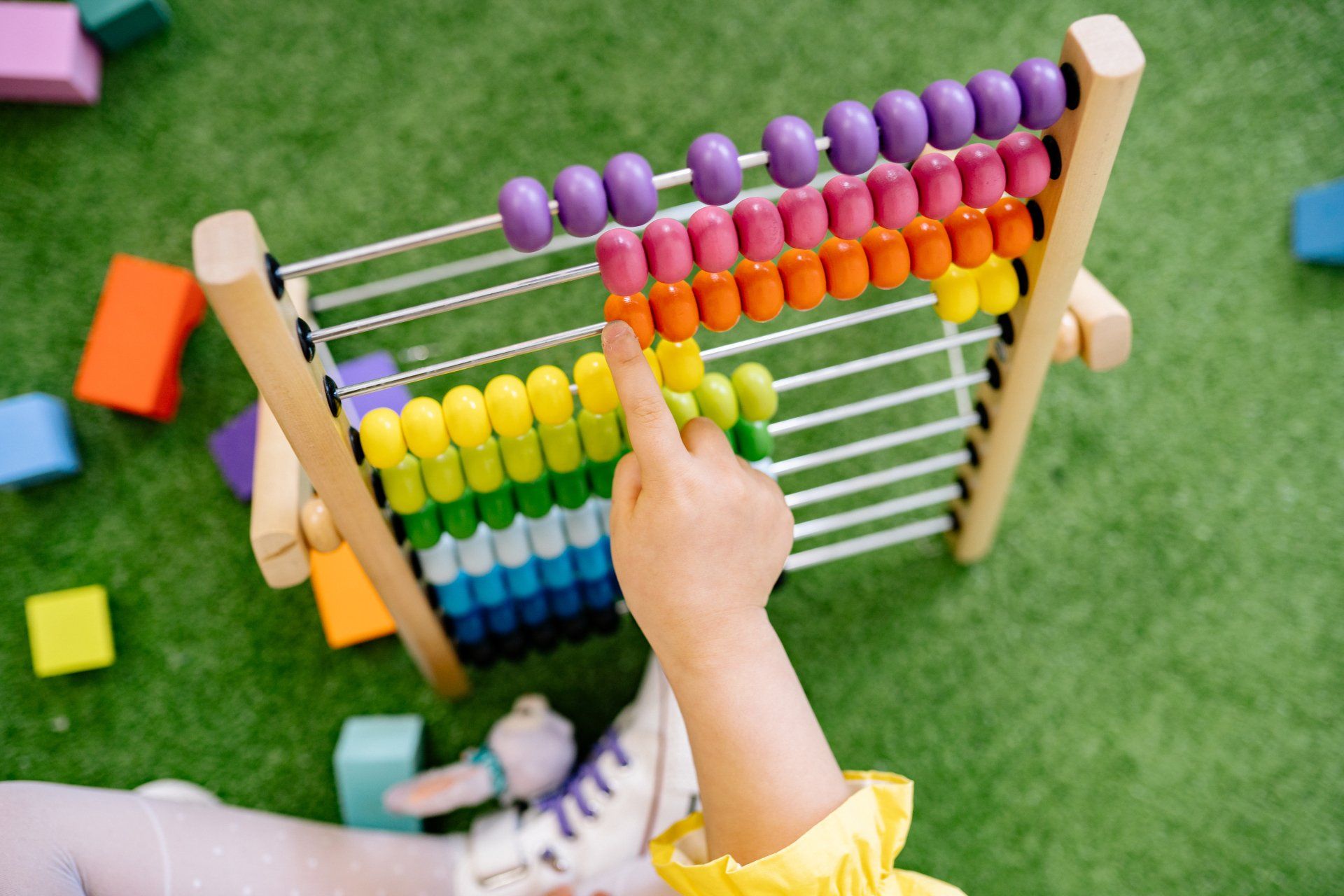Why abacus for kids?
The abacus is one of the oldest math tools that humanity used. It is more than 4,000 years old, and it was used in the past by merchants and traders to keep track of their sales. Throughout the years, abacus learning has been quite reduced, although it is still relatively popular in African and Asian countries and certain areas of Europe, like Russia.
It is believed that the abacus was first used in China. Since then, people have used it to perform basic arithmetic operations quickly, such as addition and subtraction. It's also possible to complete some complex operations, such as division, multiplication, roots up to three degrees, and even cube and square.
All of this may sound a bit intimidating for a kid. However, the truth is that early exposure to the abacus can help your kid develop several useful skills, such as the ability to solve math operations in their mind and critical and analytical thinking. Research also suggests that abacus learning may also stimulate the development of creative and artistic skills.
Are you still not sure whether the abacus is the right resource for your kid or not? Let's explore together all the benefits associated with abacus learning and how it can help your kid develop different skills that will be useful in later stages of their life.
Which is the right age to start Abacus Education?
Abacus learning is easier to process between the ages of 4-13. Still, it’s important to understand that every kid has a different learning process, but the sooner your child starts learning it, the easier it will be for them to understand how it works.
Please note that there is no "right age" to start learning the abacus. It is appropriate for both kids and adults, although kids can benefit the most from it, as it grants them the opportunity to develop different skills that will be useful for them throughout their lives.
Next, we'll explain some of the benefits your kid will enjoy if you encourage abacus learning from a young age. It may seem intimidating at first, but with frequent practice, it'll be easier for them to perform different arithmetic operations, with or without the abacus.
Training in an Abacus Class helps children develop self-reliance and confidence
It is often deemed as a "complex" subject. It scares many kids (and even adults) due to the challenging nature of the operations. Although the traditional methods can be useful, abacus learning can help people solve math problems quickly even if the device isn’t present.
After continuous practice, the user becomes familiar with the ways of the abacus. It’ll be easier for them to perform different operations relying on their minds, as they’ll start mimicking the functioning of the abacus in their minds. After a while, it’ll be easier for them to make calculations and other processes with ease, not only math-related.
Compared to non-abacus students, kids who have learned how to utilize the abacus tend to feel more confident and rely on their skills to solve math problems.
The Abacus Improves Concentration and the ability to conduct mental math.
Abacus learning can help kids develop better concentration and focus, as they’re required to “drown out” all the distractions in their surroundings to be able to complete the operations. Constant practice with the abacus can teach them how to focus on challenging environments while also learning how to complete calculations virtually, without the need for any resources.
These skills can be quite helpful in later stages of the kid's life, at both personal and educational levels. After all, procrastination is one of the biggest problems among the younger generations. It’s important for kids to learn how to find themselves in different environments, and abacus learning may help them enhance this part of their psyche.
Training in an Abacus Class contributes to brain development
Averagely, the brain stops developing at around age 25. However, the critical brain development period started at age 2 and finished at age 7, on average. Although each individual grows at a different pace, it is important for parents to provide a rich education during this important time of a kid's life. That's where abacus learning can be of help.
The abacus can help your kid develop diverse “essential” skills that will be helpful for them during later stages of their life. Some of these skills include the following:
- Speed and accuracy: When it comes to competitive exams, knowledge isn't enough. Speed and accuracy are crucial, as the child must be able to provide accurate answers in little time. Learning the abacus can help your kid learn about time optimization without losing accuracy during the problem-solving process.
- Creativity: Some studies have suggested that the abacus stimulates creativity and artistic skills in kids. After all, it implies strengthening their visualization and imagination abilities.
- Gross motor skills: Although this benefit applies to younger kids, it’s also important to mention it. Children are required to move the beads on the abacus by using their hands and fingers, helping them develop motor skills every time they practice.
- Analytical skills: Perhaps this benefit of abacus learning is the most notable. Besides learning how to perform basic arithmetic operations, your child will also be keening their analytical skills. For instance, this ability is trained whenever the kid is required to solve the same problem with different formulas.
As you can see, abacus learning has many benefits that can help your kid become the best version of themselves in the future. The abacus is slowly becoming a popular extracurricular activity among the younger generations due to the many benefits it has for their development.
Kids can start learning how to use the abacus starting from age 4, although there isn’t a particular age to learn the abacus. Hence, if you have an older child or perhaps would like to learn how to use the abacus yourself, remember that it is never too late to learn a new skill.
Everyone can benefit from the wonders of the abacus!



